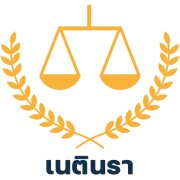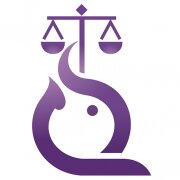Best Education Law Lawyers in Thailand
Share your needs with us, get contacted by law firms.
Free. Takes 2 min.
Or refine your search by selecting a city:
List of the best lawyers in Thailand
Legal guides written by Smart Legal Solutions:
- Main Legal Measures to Protect Foreign Investment in Thailand
- The importance of the geographical indications for the Thai economy
About Education Law in Thailand
Education Law in Thailand is an important legal field that governs the rights and responsibilities of educational institutions, teachers, students, and parents. The education system in Thailand is regulated by various laws and regulations that ensure the provision of quality education while safeguarding the rights and obligations of all parties involved. Major pieces of legislation that influence education law in Thailand include the National Education Act of 1999 and its amendments, which aim to develop education suitable for all, and various decrees and regulations issued by the Ministry of Education.
Why You May Need a Lawyer
There are several situations where individuals or institutions may require legal assistance related to education law:
- Conflicts between students and educational institutions regarding disciplinary actions or dismissals.
- Issues related to the rights and responsibilities of parents and guardians in their children's education.
- Legal challenges faced by foreign students attending schools in Thailand.
- Concerns around the discrimination and equal access within educational settings.
- Compliance concerns for educational institutions with respect to educational laws and regulations.
- Employment disputes involving teachers and educational staff.
Local Laws Overview
Key aspects of Thailand's education laws include:
- The National Education Act: Establishes principles of education management and rights to education for all citizens.
- The Compulsory Education Act: Specifies that children must attend school for a set number of years.
- Ministerial Regulations: Encompass various rules and standards for educational institutions, covering curriculum standards, assessment, and operational requirements.
- Private School Act: Governs the operations of private educational institutions in Thailand.
- Teacher and Educational Personnel Council Act: Relates to the qualifications, roles, and responsibilities of teachers and educational personnel.
Frequently Asked Questions
What is the National Education Act?
The National Education Act is a law enacted to establish guidelines and principles for the education system in Thailand, ensuring access to education for all citizens and setting standards for educational institutions.
Is education compulsory in Thailand?
Yes, education is compulsory in Thailand. The Compulsory Education Act mandates children to attend school for nine years, from primary school (Prathom 1) through lower secondary school (Matthayom 3).
Can foreign students attend Thai schools?
Yes, foreign students can attend schools in Thailand. However, they must comply with specific visa and educational regulations, and it is advised to seek legal guidance to ensure compliance.
How are disputes between students and schools resolved?
Disputes can be resolved through school mediation processes, and if necessary, through legal proceedings in court. Consulting a lawyer is recommended for guidance on these matters.
Are there specific laws protecting students with disabilities?
Yes, Thailand has provisions under the National Education Act and other regulations that ensure educational access and protection for students with disabilities.
What are my rights as a parent in my child's education?
Parents have the right to be involved in their child's education, including participating in school meetings and evaluations, and advocating for their child's educational needs and welfare.
Can teachers negotiate their contracts independently?
Teachers generally work under the contractual terms set by their educational institutions. However, legal support can help negotiate or clarify contract terms, particularly where discrepancies or disputes arise.
How are private schools regulated?
Private schools in Thailand are regulated under the Private School Act, which provides the framework for their operations, including curricula, administrative structures, and teacher requirements.
What should I do if my child is being discriminated against at school?
Parents can first address the issue with school authorities. If the matter persists, they may seek legal counsel to explore options such as lodging a formal complaint or legal action.
Are vocational education laws different from general education laws?
Vocational education in Thailand is also regulated but is often subject to additional laws and requirements tailored to technical and vocational training standards.
Additional Resources
For individuals seeking additional information or legal advice in education law, the following resources may be helpful:
- Ministry of Education, Thailand: Provides information and resources related to educational policies and regulations.
- Office of the Basic Education Commission (OBEC): A governmental body overseeing public education at the basic level in Thailand.
- National Human Rights Commission of Thailand: Offers support for human rights-related educational issues.
- Local law firms specializing in education law: These firms offer specific legal services related to educational matters.
Next Steps
If you require legal assistance concerning education law in Thailand, consider the following steps:
- Identify the specific issue or dispute that requires legal attention.
- Consult with a lawyer who specializes in education law to understand your rights and options.
- Gather all relevant documentation and evidence related to your case or issue.
- Consider seeking advice from governmental bodies or organizations dedicated to education and legal issues in Thailand.
- Prepare for potential legal proceedings by familiarizing yourself with the related laws and procedures.
By understanding your rights and the relevant laws, you can better navigate any legal challenges surrounding education in Thailand.
Lawzana helps you find the best lawyers and law firms in Thailand through a curated and pre-screened list of qualified legal professionals. Our platform offers rankings and detailed profiles of attorneys and law firms, allowing you to compare based on practice areas, including Education Law, experience, and client feedback.
Each profile includes a description of the firm's areas of practice, client reviews, team members and partners, year of establishment, spoken languages, office locations, contact information, social media presence, and any published articles or resources. Most firms on our platform speak English and are experienced in both local and international legal matters.
Get a quote from top-rated law firms in Thailand — quickly, securely, and without unnecessary hassle.
Disclaimer:
The information provided on this page is for general informational purposes only and does not constitute legal advice. While we strive to ensure the accuracy and relevance of the content, legal information may change over time, and interpretations of the law can vary. You should always consult with a qualified legal professional for advice specific to your situation.
We disclaim all liability for actions taken or not taken based on the content of this page. If you believe any information is incorrect or outdated, please contact us, and we will review and update it where appropriate.
Browse education law law firms by city in Thailand
Refine your search by selecting a city.

















